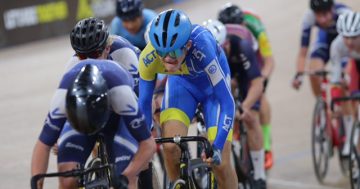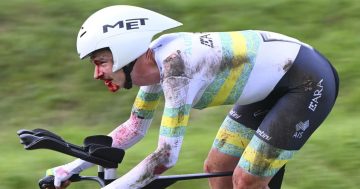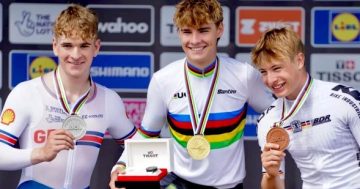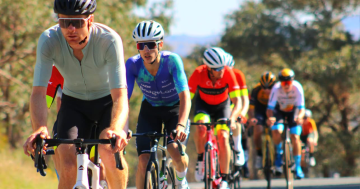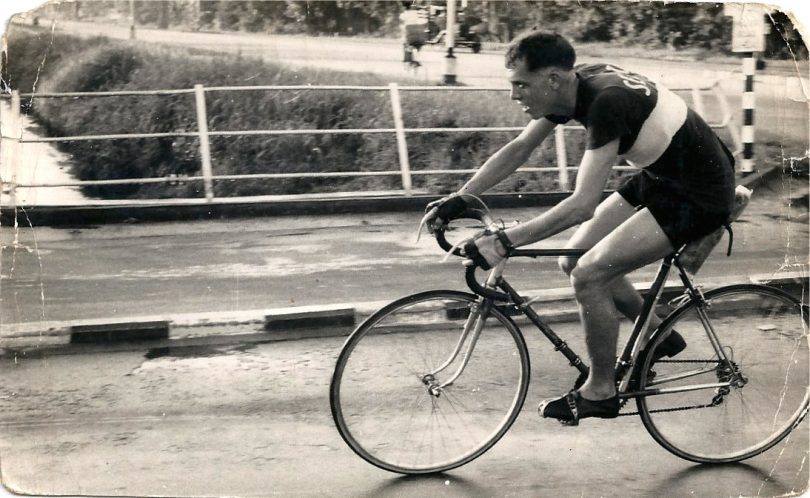
Legendary Canberra cycling coach Derek Aisbitt has died aged 88. Photo: Supplied.
There is an image which is hard to erase from the mind once envisaged, and it exemplifies the single focus of a coach determined to get the best out of his athletes.
The image is of Canberra cycling coach Derek Aisbitt driving up Mount Stromlo in his Honda Accord with his son, Michael, in the passenger seat.
Michael probably tells it best: “I went out one night with him. I was in the passenger seat with a tin of paint on the floor and a brush in my hand, and every hundred metres or so I had to open the door and paint a 30cm line on the road.
“It identified where a surge would take place during a training session up Mount Stromlo. He was well ahead of his time when it came to innovation in training programs. It was effort-based work and all about efficiency.”
Then there’s the image of Derek clad in his dressing gown at six o’clock in the morning in his Honda issuing instructions to his charges along Adelaide Avenue.
Or the stories about Derek profiling every significant hill and mountain in Canberra, with the information used to develop training programs.
This was in the days before technology did it for you.
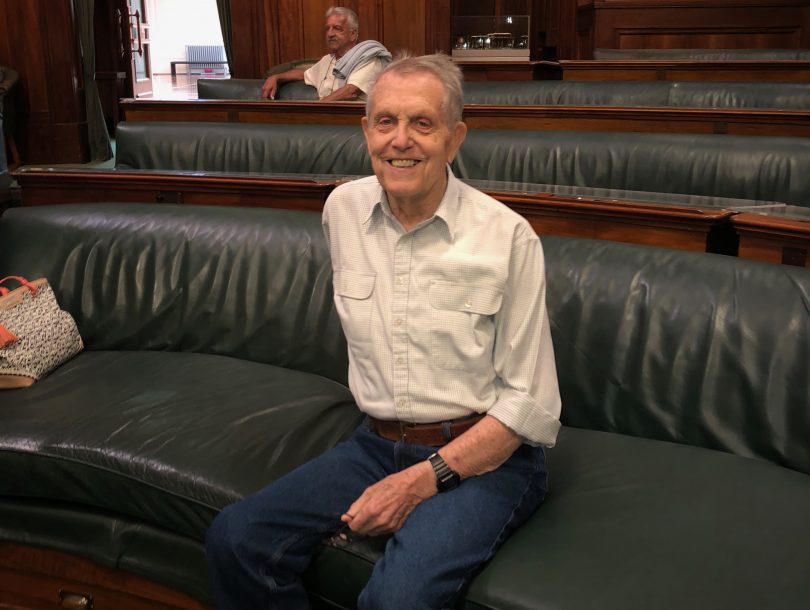
Derek Aisbitt enjoying the political surrounds of Canberra. Photo: Supplied.
Under his father’s coaching, Michael became a champion cyclist, as did plenty of others including Simon Calder, Robert McLachlan, Adrian Nolan, Nathan Page, Jim Veal, Michael Hayman, and three Rogers brothers, Michael, Deane and Peter.
Some have described Derek’s coaching style as brutal and honest.
It obviously worked with Canberra cyclists dominating NSW teams for the National Championships.
Peter Rogers says Derek had an enormous influence on his cycling career, and the careers of his brothers.
“I met him when I was 15 years old and within a year I was Australian champion in the teams time trial,” he says. “He also got Michael and Deane moving well early in their cycling careers.”
In terms of Derek’s training regime, Peter says he believed in what he was doing and we are acknowledging that now more than ever.
“I wish I’d stayed with him in my senior years,” he says. “In hindsight, he was a great innovative coach.”
Michael Aisbitt says the great cycling coaches respected his father globally.
“He was reasonably private,” he says. “He could fit in with the experts and create thought-provoking conversation. He did an enormous amount of research.”
The time and effort Derek put into coaching wasn’t driven by money. He simply had a desire to get the best out of his athletes.
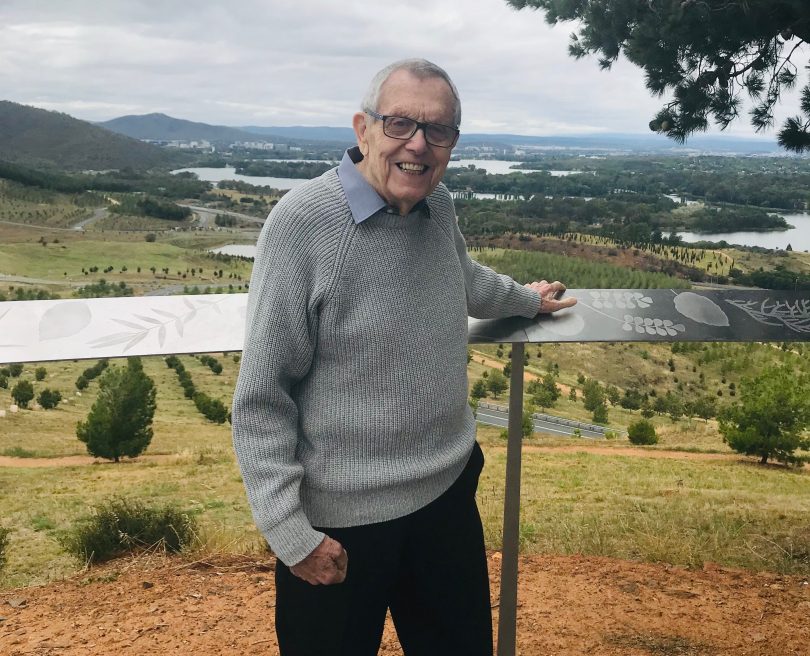
Derek Aisbitt is fondly remembered by the Canberra cycling community. Photo: Supplied.
Raised in England before emigrating to Australia in 1965, Derek grew to become a cyclist, racing with the Canberra Old Boys in the early 1980s. But it was the impact he had as a coach that has left an indelible memory on every athlete he came in contact with.
In the minds of many, he was potentially one of the greatest cycling coaches Australia has produced. He may not have received recognition outside the cycling community, but within it they swear by his ability to instil confidence in his riders.
Peter Rogers sums it up well: “I don’t know anybody who didn’t do what he said. Anybody who did what he said got results. He did a lot of work with club riders. He would lift them just over a couple of months. He was quiet, with a sense of humour, and he only instilled confidence in his riders.”
The past decade wasn’t easy for Derek, before he died at the age of 88. For a man so accomplished in developing training methods – 30 years ahead of his time – to struggle with dementia was hard on everybody.
“It’s been tough,” says his son, Michael.
It’s worth noting Derek wouldn’t have been able to achieve as much as he did without the support of his family: wife Angela, daughter Kim, and sons Gary and Michael.












